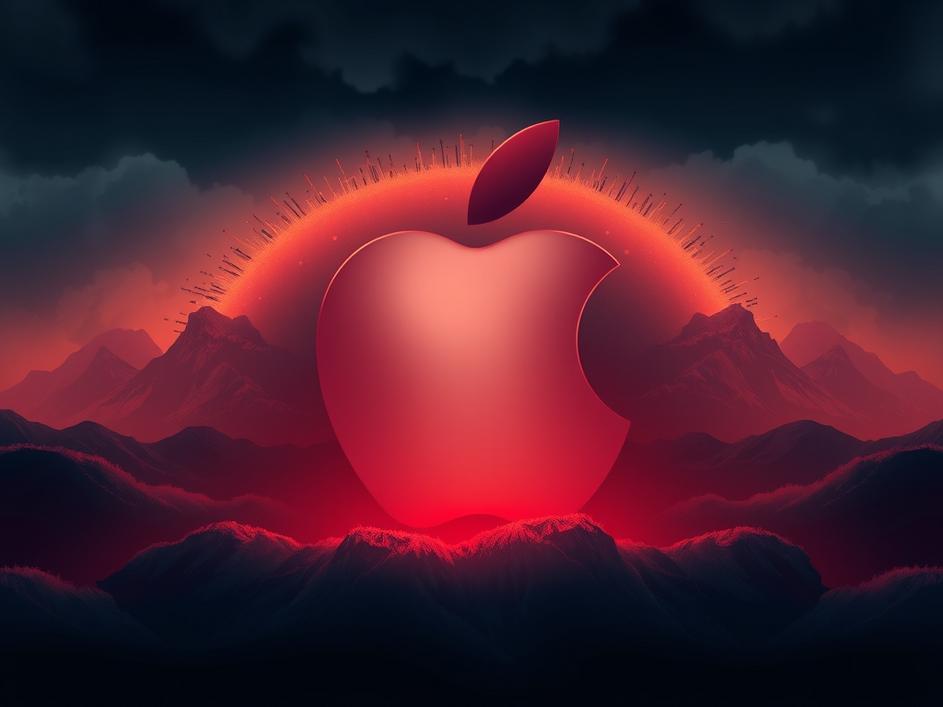


We are a digital agency helping businesses develop immersive, engaging, and user-focused web, app, and software solutions.
2310 Mira Vista Ave
Montrose, CA 91020
2500+ reviews based on client feedback

What's Included?
ToggleIt feels like the world is constantly facing new challenges. We hear about trade disagreements between countries, and everyone’s talking non-stop about artificial intelligence and who’s leading the pack. You’d think a massive company like Apple, with its global reach and reliance on complex supply chains, would be feeling the heat. Common sense might tell us that such headwinds would slow down even the biggest players. But here’s the thing: recent reports suggest Apple is not just surviving, but actually putting up some seriously strong financial numbers. It’s a bit like watching a ship sail smoothly through choppy waters while others struggle. This news really makes you stop and think about what exactly gives them this kind of resilience, especially when so many other businesses are bracing for impact from global uncertainties and the fast-moving tech landscape. It’s more than just luck; there has to be a deeper strategy at play that allows them to remain so robust when so many external factors could easily derail them.
When you look at Apple, it’s easy to focus on the shiny new iPhone or the latest MacBook. But their real strength goes way beyond individual devices. What Apple has really mastered is building an entire world where everything just works together. Think about it: your iPhone talks to your Apple Watch, which talks to your AirPods, and all of it connects seamlessly with your iPad and Mac. This isn’t accidental; it’s a deliberate strategy that creates a powerful ecosystem. Once you buy into one Apple product, it becomes really appealing to stay within that world because of how smoothly everything integrates. Switching to another brand often means learning new systems and potentially losing some of that easy connectivity. This strong sense of interconnectedness fosters incredible brand loyalty. People aren’t just buying a product; they’re buying into an experience that makes their daily life a little simpler, a little more fluid. This kind of deep loyalty means customers often stick with Apple, even when money is a bit tighter, or when new competitors pop up with similar offerings. They’re investing in convenience and a familiar, reliable setup, which makes them less likely to jump ship.
Global trade tensions and the possibility of tariffs are usually a huge headache for companies that produce goods worldwide. For a company like Apple, which sources components and assembles products across various countries, these political and economic squabbles could easily disrupt their operations and bottom line. However, Apple seems to have been quietly making strategic moves to lessen these risks. They haven’t been loud about it, but they’ve been working on diversifying their supply chains and even shifting some manufacturing to different regions. This isn’t a quick fix; it takes years of planning and investment. By not putting all their eggs in one basket, they reduce their vulnerability to issues in any single country or region. It’s like having multiple routes to your destination – if one road is blocked, you can simply take another. This proactive approach to managing their global footprint means they’re better insulated from sudden political shifts or economic pressures that might cripple less agile companies. Their ability to adapt and spread out their manufacturing muscle is a silent but significant factor in their continued success, helping them navigate a complex global economy.
When most people talk about artificial intelligence these days, they often think of large language models, chatbots that write poetry, or groundbreaking new algorithms. Other tech giants are loudly announcing their latest AI breakthroughs, aiming to be at the forefront of this new wave. Apple, however, has taken a more understated, yet incredibly effective, approach. Instead of focusing on splashy, standalone AI features, they’ve woven AI into the very fabric of their devices and software. You might not even realize it’s AI, but it’s there: helping your camera take better photos, improving the accuracy of Siri, making your battery last longer by smartly managing power, or personalizing your experience without you having to do anything. This kind of on-device, practical AI is less about being revolutionary in a headline and more about making your daily interactions with your devices smoother, more intuitive, and more personal. It’s AI that serves the user directly, enhancing existing features and making the overall experience better. This focus on useful, integrated AI, rather than just raw processing power or complex models, is what resonates with their users and keeps them feeling that their Apple products are always improving and working smarter for them, even if it’s not always advertised as a separate ‘AI feature.’ This strategy ensures that AI is a tool for user enhancement, not just a buzzword for them to chase.
Beyond the tech specs and the clever supply chains, there’s an undeniable truth about Apple: it’s a brand with immense cultural weight. People don’t just buy an Apple product; they buy into a perception of quality, design, and a certain lifestyle. This isn’t to say their products aren’t good – they often are – but the brand itself carries a premium. This perception has been carefully cultivated over decades through consistent product quality, sleek marketing, and a user experience that often feels more polished than its competitors. This strong brand loyalty means that even when economic times get tough, or when other companies offer similar features at lower prices, a significant segment of consumers remains dedicated to Apple. They’re willing to pay a premium for what they believe is a superior product and a more reliable experience. This enduring appeal acts as a powerful shield, allowing Apple to maintain its pricing power and customer base even when external pressures might suggest otherwise. It’s a testament to the power of a brand built on trust, design, and a consistent promise of quality, making their customers feel like they’re part of something exclusive and dependable.
So, Apple is proving incredibly robust right now, showing that they can sail through storms that might sink others. But the future is never set in stone. The global economy will continue to shift, and the AI landscape is evolving at a breakneck pace. To keep this momentum going, Apple will need to keep innovating, but perhaps not always in the way people expect. Their strength lies in understanding what their users truly value: seamless integration, reliability, and practical enhancements to their daily lives. They might not always be the first to jump on every new tech trend, but when they do incorporate something new, they make sure it works really well and fits into their existing ecosystem. Continuing to focus on this user-centric approach, refining their existing products, and making smart, strategic moves with their supply chain will be key. It’s about maintaining that delicate balance of innovation and stability, ensuring they don’t lose sight of what makes them uniquely Apple in a crowded and noisy market. Their long-term planning, rather than short-term hype, seems to be their compass.
It’s easy to get caught up in the dramatic headlines about global trade wars and the fierce competition in the AI space. These stories often paint a picture of uncertainty and risk for big businesses. But Apple’s latest strong financial results offer a powerful counter-narrative. They show that with a deep understanding of customer loyalty, smart strategic planning in areas like supply chain management, and a focus on practical, integrated innovation rather than just chasing the loudest trends, a company can build incredible resilience. Apple isn’t just surviving these challenging times; they’re demonstrating a quiet strength that allows them to thrive. It’s a testament to the idea that sometimes, the steady, thoughtful approach, one focused on building a solid foundation and a loyal user base, can be far more powerful than constantly chasing the next big thing. Their success serves as a fascinating case study for any business looking to navigate the complexities of our modern global economy.



Comments are closed